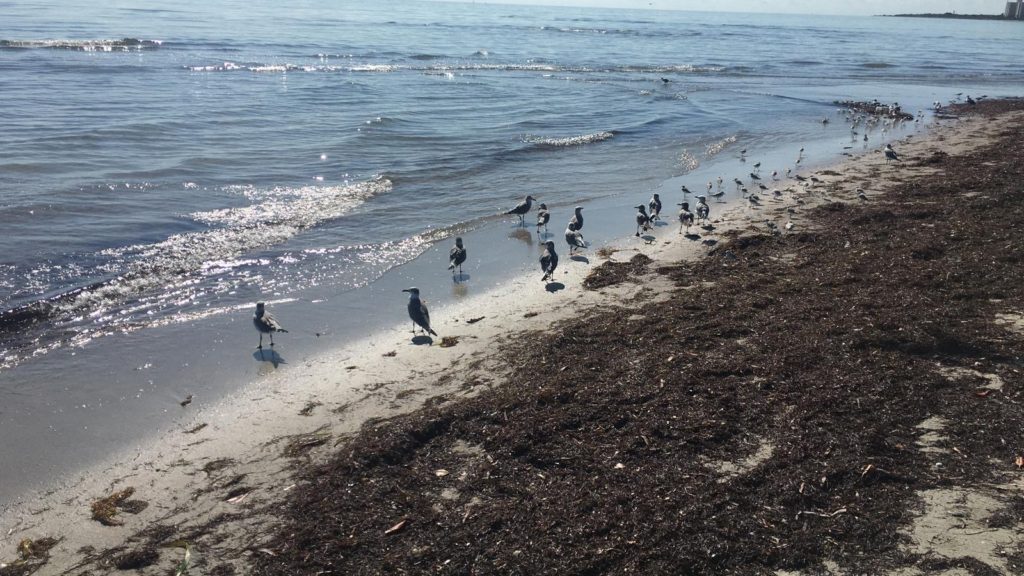Florida Water Quality Limits Triennial Review: Make Your Voice Heard!
Rumya SundaramNovember 21, 2019

Seaweed on Key Biscayne beaches this summer (Key News/Annali Hayward)
As required by the federal Clean Water Act, the State of Florida reviews its water quality standards every three years. The review requires public comments, which must be submitted by Friday, Nov. 22. Unfortunately, the state did not appear to give much notice for the public comment period and it only recently came to light.
The Clean Water Act is also responsible for the current beach water quality limit of enterococci bacteria of 71 CFU (colony forming units) per 100mL of water and dictates the amount of pollutants allowed in treated water discharge, among other things.
Currently, there are no standards for toxic blue-green algae discharge in any state. In Florida, this has been an ongoing dilemma when water is released from Lake Okeechobee into the Gulf of Mexico and the Atlantic Ocean. The releases cause toxic algae blooms in St. Lucie and Caloosahatchee, and often many other waterways and near-shore areas.
The algae blooms are caused by nutrient influx, which has been blamed for the loss of seagrass in the Biscayne Bay area, and may be the cause of a shift in marine life and near-shore ecology.
Blue-green algae have also been known to cause human health issues and possible neurological effects. These problems are often not detected immediately and can take many years to become apparent. This same toxic algae has also been known to sicken and kill dogs that may swim in or drink the affected water.
Many nonprofit organizations, including the Center for Biological Diversity, the Sanibel-Captiva Conservation Foundation and the Calusa Waterkeeper, have been petitioning the state to set algae limits, and they are not alone.
In January 2019, Governor Rick DeSantis signed an executive order to create a Blue Green Algae Task Force to tackle the problems arising from Florida’s algae problem. It is meant to help with the Protecting Florida Together mission and “will focus on expediting water quality improvements in the next five years.” The task force supports restoration initiatives – in particular, to come up with recommendations to reduce nutrients flowing from Lake Okeechobee and its tributaries.
The task force has now also suggested the state institute toxic algae limits. In October of this year, they completed a six-month review in the form of a consensus document, in which they outline some health concerns and recommendations for funding further investigation. “Of particular importance and urgent need are studies that address acute and chronic health effects of exposure of humans, wildlife and domesticated animals to algal toxins,” the task force states.
To submit comments, send an email to Kaitlyn.sutton@floridadep.gov. You can also mail comments to 2600 Blair Stone Road, Mail Station 6511, Tallahassee, FL 32399-2400.


